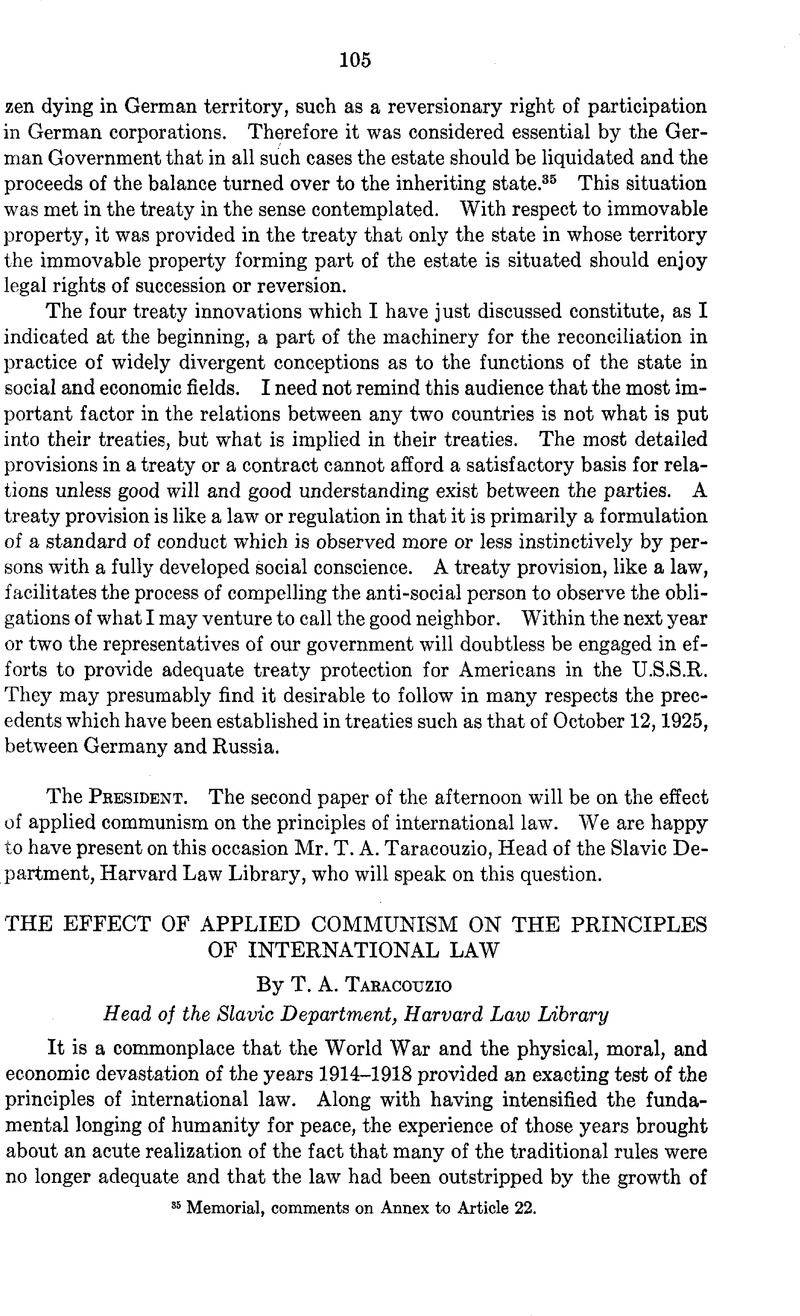No CrossRef data available.
Published online by Cambridge University Press: 27 February 2017

1 Engels, Origin of the Family, p. 63.
2 Marx, Critique of the Gotha Program, p. 71.
3 Sobr. Zak. i Rasp. S. S. S. R., 1926, p. 586.
4 Sobr. Uzak. i Rasp. R. S. F. S. R., 1922, p. 202.
5 Arts. 6 and 58 of the Criminal Code of the R.S.F.S.R. of 1926 (Sobr. Kodeksov R. S. F. S. R., 4th ed., pp. 654 and 665).
6 On Jan. 15, 1924, an agreement was signed with China to the effect that their diplomatic representatives were mutually elevated to the rank of Ambassador. An official dispatch of Dec. 25, 1928, addressed to the Afghanistan Government, notified the latter that the diplomatic representatives were henceforth elevated to the same rank.
7 Sobr. Zak. i Rasp. S. S. S. R., 1926, p. 126.
8 Korovin, Sovremennoe MezMunarodnoe Pravo, p. 137.
9 von Clausewitz, Von Kriege, p. 28.
10 Lenin, Works, XVIII, p. 97.
11 Egor’ev, , “Pravo Vozdushnoi Voiny,” Voprosy Vozdujshnogo Prava, I, p. 126.Google Scholar
12 Art. 23, IV Hague Convention, 1907, (Brit. For. & State Papers, C, p. 354.).